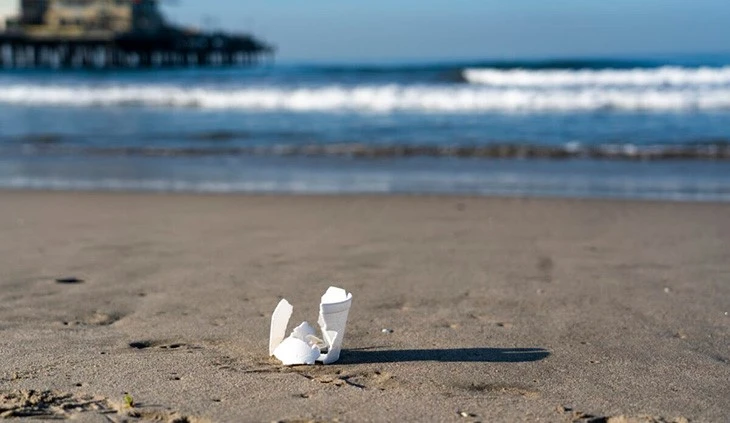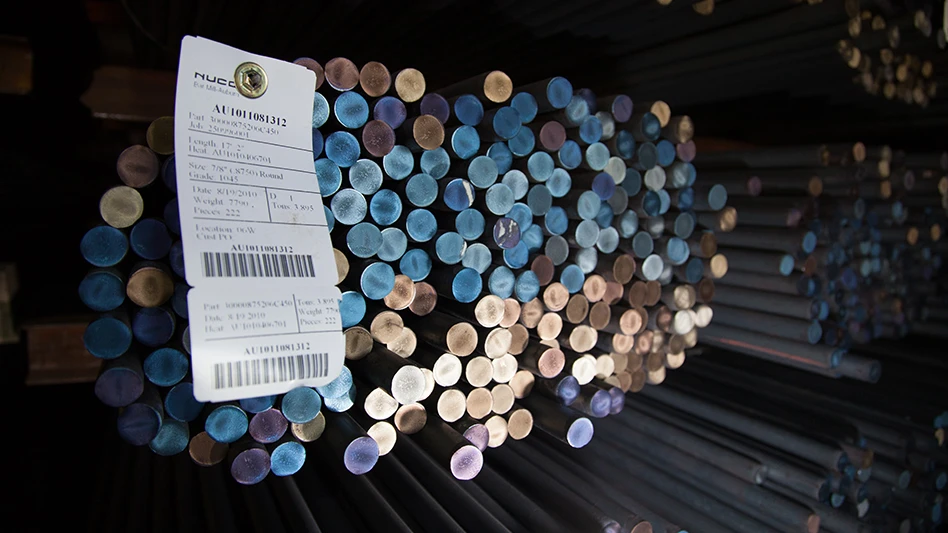
Photo courtesy of Ocean Conservancy
California Attorney General Rob Bonta recently announced an investigation into the fossil fuel and petrochemical industries for their roles in causing and exacerbating the global plastics pollution crisis. It also will look for what laws, if any, have been broken in the process.
“In California and across the globe, we are seeing the catastrophic results of the fossil fuel industry’s decadeslong campaign of deception. Plastic pollution is seeping into our waterways, poisoning our environment and blighting our landscapes,” Bonta says in a statement. “Enough is enough. For more than half a century, the plastics industry has engaged in an aggressive campaign to deceive the public, perpetuating a myth that recycling can solve the plastics crisis.”
Bonta says the global plastics pollution crisis has been driven by the fossil fuel and petrochemical industries. In the 1950s, the world produced about 1.5 million tons of plastic annually. He says that number has skyrocketed to more than 300 million tons, with plans to continue to increase supply in the coming decades.
Bonta says the fossil fuel and petrochemical companies have doubled down on plastics production, recently investing an additional $208 billion to expand plastic production worldwide. Plastic production is a significant source of greenhouse gas emissions, and the planned expansion of fossil-fuel-based production runs counter to efforts to address the climate crisis through a transition to clean energy, according to the Californian Attorney General's office.
Bonta claims that companies spent millions promoting the benefits of plastics and how they can be recycled. However, industry officials knew recycling plastic was not feasible as far back as the 1970s, according to a report from NPR.
The announcement has drawn praise from conservation groups like Oceana and Ocean Conservancy, both based in Washington. The two organizations say they believe the investigation could affect the amount of ocean-bound plastics.
"We've been duped for over 50 years by the plastics industry's multimillion-dollar PR campaigns, which wrongfully blamed individuals instead of companies for the plastic pollution crisis and falsely touted recycling as a panacea when industry executives knew better,” says Christy Leavitt, plastics campaign director for Oceana. “The deception behind the plastics industry's recycling promise is evident on California's shores and streets, where plastic takeout containers, utensils and more taint the beauty of the state and threaten its coastal economy and its people.”
A recent Oceana survey found that 91 percent of California voters are concerned about plastic's impact on the environment and our oceans.
According to Ocean Conservancy, 99 percent of plastics are made with fossil fuels and about 11 million metric tons of plastic enter the ocean each year. That number is projected to triple by 2040. The organization says nearly 70 percent of the most-collected items over the last 35 years of the International Coastal Cleanup are effectively unrecyclable. Of these, half are food and beverage-related items such as food wrappers, straws and stirrers and takeout containers.
“At every level of government in California, we are seeing ambitious action against the threat of single-use plastics,” says Anja Brandon, U.S. plastics policy analyst at Ocean Conservancy. “The Attorney General’s announcement is an unmistakable signal to the fossil fuel and petrochemical industries that there will be no turning back on this issue, they will be held accountable."
The American Chemistry Council (ACC) is pushing back on the claims Bonta has made.
“We strongly disagree with the portrayal of our industry by Attorney General Bonta,” says Joshua Baca, vice president of plastics. “As we’ve repeatedly emphasized, plastics belong in our economy, not our environment. America’s plastic makers are committed to a more sustainable future and have proposed comprehensive and bold actions at the state, federal and international levels in our 5 Actions for Sustainable Change and 5 Principles to End Plastic Waste Globally.”
The ACC's proposal includes requiring all plastic packaging in the U.S. to include at least 30 percent recycled plastic by 2030, establishing a producer responsibility system for packaging that will help increase recycling infrastructure and supporting a legally binding global agreement to stop leakage and build waste management infrastructure globally.
This November, Californians will vote on the Stop Plastic Pollution initiative, a policy that would reduce single-use plastic packaging. In addition, the California legislature is currently considering Assembly Bill 2026 to address the increasing threat of single-use plastic packaging in online sales.
Latest from Recycling Today
- Nippon Steel acknowledges delay in US Steel acquisition attempt
- BASF collaborates to study mechanical plastic recycling
- Commentary: navigating shipping regulations for end-of-life and damaged batteries
- Haber raises $44M to expand to North America
- Canada Plastics Pact releases 2023-24 Impact Report
- Reconomy brands receive platinum ratings from EcoVadis
- Sortera Technologies ‘owning and operating’ aluminum sorting solutions
- IDTechEx sees electric-powered construction equipment growth





